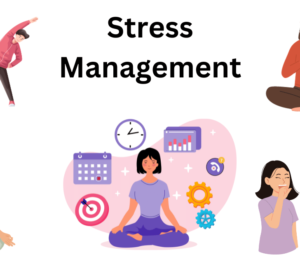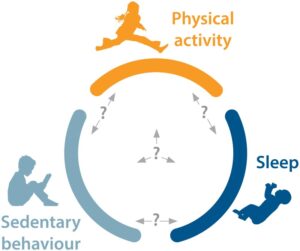
Maintaining a healthy lifestyle involves a combination of good habits related to diet, exercise, sleep, stress management, and social connections. Here are some tips:
Balanced Diet:
Focus on whole, unprocessed foods like fruits, vegetables, lean proteins, whole grains, and healthy fats. Be mindful of portion sizes and try to limit added sugars and unhealthy fats.

- Variety: Include a variety of foods from all food groups in your diet. This includes fruits, vegetables, whole grains, lean proteins, and healthy fats. Different foods provide different nutrients, so consuming a diverse range ensures you get all the essential vitamins and minerals your body needs.
- Portion Control: Be mindful of portion sizes to avoid overeating. Use smaller plates, bowls, and utensils to help control portion sizes and prevent overconsumption.
- Fruits and Vegetables: Aim to fill half your plate with fruits and vegetables at each meal. These foods are rich in vitamins, minerals, antioxidants, and fiber, which are essential for good health.
- Whole Grains: Choose whole grains such as brown rice, quinoa, oats, and whole wheat bread over refined grains. Whole grains are higher in fiber and nutrients and can help regulate blood sugar levels and promote digestive health.
- Lean Proteins: Incorporate lean sources of protein into your diet, such as poultry, fish, tofu, beans, lentils, and legumes. Protein is essential for building and repairing tissues, supporting immune function, and maintaining muscle mass.
- Healthy Fats: Include sources of healthy fats in your diet, such as avocados, nuts, seeds, and olive oil. These fats are important for brain health, hormone production, and absorbing fat-soluble vitamins.
- Limit Added Sugars and Processed Foods: Minimize your intake of processed foods, sugary snacks, and beverages high in added sugars. These foods can contribute to weight gain, inflammation, and an increased risk of chronic diseases.
- Hydration: Drink plenty of water throughout the day to stay hydrated. Water is essential for digestion, nutrient absorption, temperature regulation, and overall bodily functions.
- Moderation: Practice moderation when indulging in less nutritious foods. It’s okay to enjoy treats occasionally, but aim to make healthy choices the majority of the time.
- Listen to Your Body: Pay attention to how different foods make you feel. Eat when you’re hungry and stop when you’re satisfied. Trust your body’s hunger and fullness cues to guide your eating habits.
By following these guidelines, you can maintain a balanced diet that supports your health and well-being. Remember that small, sustainable changes over time can lead to long-term success.
Regular Exercise:
Aim for at least 150 minutes of moderate-intensity aerobic activity or 75 minutes of vigorous-intensity activity each week, along with muscle-strengthening activities on two or more days per week.

Regular exercise is crucial for maintaining good physical and mental health. Here’s how to incorporate it into your routine:
- Find Activities You Enjoy: Choose activities that you find enjoyable and fulfilling. Whether it’s walking, swimming, dancing, cycling, or playing a sport, pick something that you look forward to doing.
- Set Realistic Goals: Set achievable goals for your fitness routine. Start with small goals and gradually increase the intensity or duration of your workouts as you progress.
- Schedule Exercise Sessions: Treat exercise like any other important appointment and schedule it into your calendar. Consistency is key to making exercise a habit.
- Mix It Up: Incorporate a variety of activities into your routine to keep things interesting and prevent boredom. Try different types of workouts, such as cardio, strength training, flexibility exercises, and mind-body practices like yoga or Pilates.
- Start Slowly: If you’re new to exercise or getting back into it after a break, start slowly and gradually increase the intensity and duration of your workouts. Listen to your body and don’t push yourself too hard, especially in the beginning.
- Warm Up and Cool Down: Always start your workouts with a proper warm-up to prepare your body for exercise and reduce the risk of injury. Likewise, end your sessions with a cool down to help your body recover.
- Set Realistic Expectations: Be patient with yourself and understand that progress takes time. Don’t get discouraged if you don’t see immediate results. Focus on the process and celebrate small victories along the way.
- Make It Social: Exercise with friends, family members, or join group classes to make it more enjoyable and hold yourself accountable.
- Listen to Your Body: Pay attention to how your body feels during and after exercise. If something doesn’t feel right or causes pain, modify the activity or seek guidance from a fitness professional.
- Rest and Recovery: Allow your body time to rest and recover between workouts. Rest days are just as important as exercise days for preventing burnout and reducing the risk of overuse injuries.
Remember that any amount of physical activity is better than none, so don’t be too hard on yourself if you miss a workout or two. The most important thing is to find a routine that works for you and stick with it consistently.
Adequate Sleep:
Strive for 7-9 hours of quality sleep per night. Create a relaxing bedtime routine, limit screen time before bed, and ensure your sleep environment is comfortable and conducive to rest.

Getting adequate sleep is crucial for overall health and well-being. Here are some tips to improve the quality and quantity of your sleep:
- Stick to a Schedule: Try to go to bed and wake up at the same time every day, even on weekends. Consistency helps regulate your body’s internal clock and improves sleep quality.
- Create a Relaxing Bedtime Routine: Develop a calming bedtime routine to signal to your body that it’s time to wind down. This could include activities like reading, taking a warm bath, practicing relaxation techniques, or listening to soothing music.
- Create a Comfortable Sleep Environment: Make sure your bedroom is conducive to sleep by keeping it dark, quiet, and cool. Invest in a comfortable mattress and pillows, and consider using blackout curtains, white noise machines, or earplugs if needed.
- Limit Screen Time Before Bed: Reduce exposure to screens (such as smartphones, tablets, computers, and TVs) at least an hour before bedtime. The blue light emitted by screens can interfere with your body’s production of melatonin, a hormone that regulates sleep.
- Watch Your Diet and Fluid Intake: Avoid heavy meals, caffeine, and alcohol close to bedtime, as they can disrupt sleep. Instead, opt for a light snack if you’re hungry, and limit fluids to prevent waking up for bathroom trips during the night.
- Exercise Regularly: Engaging in regular physical activity can promote better sleep, but try to avoid vigorous exercise close to bedtime, as it may energize you and make it harder to fall asleep.
- Manage Stress: Practice relaxation techniques such as deep breathing exercises, meditation, or progressive muscle relaxation to reduce stress and promote relaxation before bed.
- Limit Daytime Naps: While short naps can be beneficial for some people, long or irregular naps during the day can interfere with nighttime sleep. If you need to nap, aim for a short nap (20-30 minutes) early in the afternoon.
- Seek Professional Help if Needed: If you consistently have trouble sleeping despite trying these strategies, consider consulting a healthcare professional or sleep specialist for further evaluation and guidance.
- Listen to Your Body: Pay attention to your body’s signals and adjust your sleep habits accordingly. If you consistently feel tired or groggy during the day, it may be a sign that you need to prioritize sleep and make changes to your routine.
By implementing these tips and prioritizing sleep, you can improve the quality and duration of your sleep, leading to better overall health and well-being.
Stress Management:
Practice stress-reducing techniques such as mindfulness meditation, deep breathing exercises, yoga, or spending time in nature. Engage in activities you enjoy and make time for hobbies and relaxation.

Managing stress is essential for maintaining both mental and physical well-being. Here are some strategies to help you cope with stress effectively:
- Identify Stressors: Recognize the sources of stress in your life, whether they are related to work, relationships, finances, or other factors. Understanding what triggers your stress can help you develop strategies to manage it more effectively.
- Practice Relaxation Techniques: Incorporate relaxation techniques into your daily routine, such as deep breathing exercises, progressive muscle relaxation, meditation, or mindfulness. These practices can help calm your mind and reduce stress levels.
- Exercise Regularly: Engage in regular physical activity, such as walking, jogging, swimming, yoga, or dancing. Exercise can help reduce stress hormones like cortisol and increase the production of endorphins, which are natural mood lifters.
- Maintain a Healthy Lifestyle: Prioritize healthy habits such as eating a balanced diet, getting enough sleep, and avoiding excessive alcohol, caffeine, and nicotine. A healthy lifestyle can help buffer the effects of stress on your body and mind.
- Set Boundaries: Learn to say no to requests or commitments that cause you excessive stress or overwhelm. Set boundaries to protect your time and energy, and prioritize activities that bring you joy and fulfillment.
- Seek Social Support: Reach out to friends, family members, or support groups for emotional support and encouragement. Talking to others about your feelings can help you feel less alone and more supported during challenging times.
- Practice Time Management: Break tasks into smaller, manageable steps, and prioritize them based on importance and urgency. Use tools such as to-do lists, calendars, or time-blocking techniques to help you stay organized and focused.
- Engage in Hobbies and Activities You Enjoy: Make time for activities that bring you pleasure and relaxation, whether it’s reading, gardening, painting, playing music, or spending time in nature. Engaging in hobbies can provide a welcome distraction from stress and promote feelings of happiness and well-being.
- Seek Professional Help if Needed: If you’re struggling to manage stress on your own, consider seeking help from a therapist, counselor, or mental health professional. They can provide support, guidance, and coping strategies tailored to your individual needs.
- Practice Self-Compassion: Be kind to yourself and practice self-compassion, especially during times of stress or difficulty. Treat yourself with the same kindness and understanding that you would offer to a friend facing similar challenges.
By incorporating these stress management techniques into your daily life, you can build resilience and develop healthier ways of coping with stress. Remember that managing stress is a lifelong process, and it’s okay to seek support when you need it.
Hydration:
Drink plenty of water throughout the day to stay hydrated. Limit consumption of sugary drinks and alcohol.

Hydration is essential for maintaining proper bodily functions and overall health. Here are some tips to ensure you stay adequately hydrated:
- Drink Water Throughout the Day: Make it a habit to drink water regularly throughout the day, even if you don’t feel thirsty. Carry a reusable water bottle with you to make it easier to stay hydrated wherever you go.
- Monitor Your Urine Color: Pay attention to the color of your urine as a simple way to gauge your hydration status. Pale yellow or straw-colored urine usually indicates adequate hydration, while darker urine may be a sign that you need to drink more water.
- Drink Before You Feel Thirsty: Thirst is a sign that your body is already in the early stages of dehydration. Aim to drink water consistently throughout the day to prevent thirst from occurring.
- Eat Hydrating Foods: Incorporate foods with high water content into your diet, such as fruits (e.g., watermelon, oranges, strawberries) and vegetables (e.g., cucumber, lettuce, tomatoes). These foods can contribute to your overall fluid intake.
- Be Mindful of Fluid Loss: Activities such as exercise, hot weather, and illness can increase fluid loss through sweat, so be sure to drink extra water during these times to stay hydrated.
- Limit Dehydrating Beverages: Minimize consumption of dehydrating beverages such as caffeinated drinks (coffee, tea, soda) and alcohol, as they can contribute to fluid loss.
- Hydrate Before, During, and After Exercise: Drink water before, during, and after physical activity to replenish fluids lost through sweat and prevent dehydration. Sports drinks may be beneficial for prolonged or intense exercise sessions to replace electrolytes lost through sweat.
- Adjust Your Fluid Intake Based on Individual Needs: Factors such as age, weight, activity level, climate, and overall health can influence your fluid needs. Listen to your body and adjust your water intake accordingly.
- Consider Electrolyte Balance: In addition to water, electrolytes like sodium, potassium, and magnesium are important for hydration and muscle function. Consuming foods rich in electrolytes or using electrolyte supplements can help maintain balance, especially during prolonged or intense physical activity.
- Stay Hydrated Throughout the Day: Hydration is not just important during specific times or activities; it’s crucial to maintain adequate fluid intake consistently throughout the day for optimal health and well-being.
By following these tips and making hydration a priority in your daily routine, you can support your body’s functions and maintain optimal health and hydration levels.
Social Connections:
Cultivate strong relationships with friends, family, and community members. Social support can have a positive impact on mental and physical health.

Social connections play a significant role in our overall well-being and mental health. Here are some tips for fostering and maintaining meaningful social connections:
- Prioritize Quality Over Quantity: Focus on building deep, meaningful relationships with a few close friends or family members rather than trying to maintain a large network of acquaintances.
- Initiate Contact: Take the initiative to reach out and connect with others. Whether it’s through phone calls, text messages, emails, or social media, making the first move can strengthen your relationships and show others that you care.
- Be a Good Listener: Practice active listening when interacting with others. Show genuine interest in their thoughts, feelings, and experiences, and offer your support and empathy when needed.
- Share Your Thoughts and Feelings: Be open and honest about your own thoughts, feelings, and experiences with trusted friends or family members. Vulnerability can deepen connections and foster a sense of trust and understanding.
- Make Time for Face-to-Face Interaction: Whenever possible, prioritize spending time with loved ones in person. Face-to-face interactions allow for deeper connection and communication than digital communication alone.
- Join Groups or Communities: Get involved in clubs, organizations, or community groups that align with your interests and values. Shared activities and experiences can help you meet like-minded individuals and forge new friendships.
- Practice Empathy and Compassion: Show empathy and compassion towards others by being supportive, understanding, and non-judgmental. Small gestures of kindness can go a long way in strengthening social connections.
- Be Present: When spending time with others, be fully present and engaged in the moment. Put away distractions like smartphones and focus on enjoying the company of those around you.
- Maintain Boundaries: While social connections are important, it’s also essential to maintain healthy boundaries to protect your own well-being. Respect your own needs and limitations, and communicate them clearly to others.
- Seek Help if Needed: If you’re struggling to connect with others or feeling isolated, don’t hesitate to reach out for support. Consider talking to a therapist, counselor, or mental health professional who can provide guidance and strategies for building and maintaining social connections.
Remember that social connections are a two-way street, and it’s important to invest time and effort into nurturing and maintaining them. By prioritizing meaningful relationships and fostering genuine connections with others, you can enhance your overall well-being and sense of belonging.
Regular Check-ups:
Schedule regular visits with your healthcare provider for preventive care and screenings. Address any health concerns promptly.

Regular check-ups are an essential part of preventive healthcare, helping to detect and address health issues before they become serious. Here are some tips for scheduling and making the most of your regular check-ups:
- Schedule Regular Appointments: Make it a priority to schedule routine check-ups with your healthcare provider, typically once a year for adults. These appointments can include physical exams, screenings, and discussions about your overall health and any concerns you may have.
- Keep Track of Your Medical History: Maintain a record of your medical history, including any past illnesses, surgeries, medications, allergies, and family history of diseases. Bring this information with you to your appointments to help your healthcare provider assess your health and make informed decisions.
- Prepare Questions and Concerns: Before your appointment, take some time to jot down any questions or concerns you have about your health. This can help ensure that you address all your issues during the visit and make the most of your time with your healthcare provider.
- Be Honest and Open: Be honest with your healthcare provider about your lifestyle habits, such as diet, exercise, alcohol consumption, and smoking. Open communication can help your provider better understand your health needs and tailor recommendations accordingly.
- Follow Screening Guidelines: Discuss with your healthcare provider which screenings are recommended for your age, gender, and risk factors. Common screenings include blood pressure, cholesterol, blood glucose, mammograms, Pap smears, colonoscopies, and vaccinations.
- Discuss Preventive Measures: Use your check-up as an opportunity to discuss preventive measures to maintain or improve your health. This may include recommendations for diet, exercise, weight management, stress reduction, and vaccinations.
- Review Medications and Supplements: Review your current medications and supplements with your healthcare provider to ensure they are still appropriate and effective for your health needs. Ask about any potential side effects or interactions.
- Follow Up on Recommendations: If your healthcare provider recommends follow-up tests, screenings, or lifestyle changes, be sure to follow through with them. These actions are crucial for maintaining your health and addressing any potential issues early on.
- Take Advantage of Preventive Services: Take advantage of preventive services covered by your health insurance, such as annual wellness visits, screenings, and vaccinations. These services are designed to help you stay healthy and catch any potential problems early.
- Stay Informed: Stay informed about changes in healthcare guidelines and recommendations, and be proactive about scheduling your regular check-ups and screenings. Your healthcare provider can help you stay up-to-date on the latest recommendations and guidelines for preventive care.
By prioritizing regular check-ups and preventive healthcare measures, you can take an active role in maintaining your health and well-being for the long term.
Limit Sedentary Behavior:
Minimize prolonged periods of sitting or sedentary activities. Take breaks to stretch and move throughout the day.

Limiting sedentary behavior is important for maintaining good health, especially in today’s largely desk-bound lifestyles. Here are some tips to reduce sedentary behavior and incorporate more movement into your daily routine:
- Take Regular Breaks: Set a timer or use a reminder app to prompt you to take short breaks from sitting every 30 minutes to an hour. Use these breaks to stand up, stretch, walk around, or perform light physical activities.
- Use Active Transportation: Whenever possible, choose active modes of transportation such as walking, cycling, or taking the stairs instead of driving or using elevators.
- Incorporate Movement into Daily Tasks: Look for opportunities to add movement to your daily activities. For example, stand or walk while talking on the phone, do household chores like vacuuming or gardening, or walk to deliver messages instead of sending emails.
- Set Activity Goals: Set daily or weekly goals for physical activity and track your progress using a fitness tracker or smartphone app. Aim for at least 150 minutes of moderate-intensity aerobic activity per week, in addition to muscle-strengthening activities on two or more days per week.
- Schedule Active Breaks: Plan regular exercise or physical activity breaks into your daily schedule. Treat these breaks as non-negotiable appointments and prioritize them just like you would any other important task.
- Stand Up Desk or Ergonomic Setup: Consider using a standing desk or a desk converter that allows you to alternate between sitting and standing throughout the day. Alternatively, adjust your chair, keyboard, and monitor height for optimal ergonomics while sitting.
- Engage in Active Hobbies: Choose hobbies and recreational activities that involve movement, such as dancing, hiking, swimming, or playing sports. These activities not only reduce sedentary time but also provide enjoyment and social interaction.
- Practice Mindful Sitting: When you do need to sit for extended periods, practice mindful sitting by maintaining good posture, taking regular breaks to stand and stretch, and avoiding prolonged periods of immobility.
- Use Technology Wisely: Use smartphone apps or wearable devices to track your daily steps, set reminders to move, or participate in virtual fitness classes or challenges.
- Involve Others: Encourage family members, friends, or coworkers to join you in reducing sedentary behavior. Having a support system can help keep you accountable and motivated to stay active.
By incorporating these strategies into your daily routine, you can reduce sedentary behavior, improve your overall health, and increase your energy levels and productivity. Remember that even small changes can make a big difference over time.
Avoid Harmful Substances:
Limit or avoid smoking, excessive alcohol consumption, and recreational drug use.

Avoiding harmful substances is crucial for maintaining good health and well-being. Here are some tips to help you steer clear of substances that can be harmful to your health:
- Limit Alcohol Consumption: If you choose to drink alcohol, do so in moderation. The recommended limit is up to one drink per day for women and up to two drinks per day for men. Excessive alcohol consumption can lead to a range of health problems, including liver disease, heart disease, and addiction.
- Don’t Smoke: Avoid smoking and exposure to secondhand smoke. Smoking tobacco is one of the leading causes of preventable death worldwide and is linked to numerous health problems, including cancer, heart disease, and respiratory issues.
- Avoid Illicit Drugs: Stay away from illegal drugs and misuse of prescription medications. Illicit drugs can have severe health consequences, including addiction, overdose, and mental health disorders.
- Practice Safe Sex: Use protection, such as condoms, during sexual activity to reduce the risk of sexually transmitted infections (STIs) and unintended pregnancies. Limiting sexual partners can also reduce your risk of exposure to STIs.
- Be Cautious with Medications: Take prescription and over-the-counter medications only as directed by your healthcare provider or pharmacist. Avoid misusing or abusing medications, as this can lead to dependence, addiction, and other health complications.
- Be Wary of Harmful Chemicals: Limit your exposure to harmful chemicals in your environment, such as pesticides, pollutants, and toxins. Follow safety guidelines when using household cleaning products, pesticides, and other chemicals, and choose organic or natural alternatives whenever possible.
- Practice Responsible Gambling: If you choose to gamble, do so responsibly and within your means. Set limits on how much time and money you spend on gambling activities to avoid financial problems and addiction.
- Monitor Your Caffeine Intake: Limit your consumption of caffeinated beverages, such as coffee, tea, and energy drinks, especially if you’re sensitive to caffeine or experience sleep disturbances. Too much caffeine can lead to jitteriness, anxiety, and insomnia.
- Be Mindful of Your Diet: Minimize your intake of processed foods, sugary snacks, and beverages high in added sugars and unhealthy fats. Instead, focus on consuming a balanced diet rich in fruits, vegetables, whole grains, lean proteins, and healthy fats.
- Seek Support if Needed: If you’re struggling to avoid harmful substances or develop healthy habits, don’t hesitate to seek support from friends, family members, healthcare professionals, or support groups. They can provide encouragement, guidance, and resources to help you make positive changes.
By being mindful of the substances you consume and making conscious choices to avoid harmful ones, you can protect your health and well-being in the long term.
Set Realistic Goals:
Establish achievable goals for your health and wellness. Celebrate your progress and be patient with yourself on your journey to a healthier lifestyle.

Setting realistic goals is essential for making sustainable progress and maintaining motivation. Here are some tips for setting and achieving realistic goals:
- Be Specific: Clearly define your goal to make it easier to work towards. Instead of a vague goal like “lose weight,” specify how much weight you want to lose and by when.
- Make it Measurable: Set concrete criteria to measure your progress. For example, if your goal is to exercise more, specify how many days per week you will work out and for how long each session will be.
- Set Achievable Goals: Choose goals that are challenging yet realistic given your current circumstances, resources, and abilities. Setting overly ambitious goals can lead to frustration and burnout.
- Break it Down: Break larger goals into smaller, more manageable tasks or milestones. This makes it easier to track progress and maintain momentum over time.
- Be Time-Bound: Establish a deadline or timeline for achieving your goal. This helps create a sense of urgency and keeps you accountable.
- Focus on Process Goals: Instead of solely focusing on outcome-based goals (e.g., losing a certain amount of weight), also set process goals related to the actions you need to take to achieve the desired outcome (e.g., eating more vegetables, exercising regularly).
- Be Flexible: Be open to adjusting your goals as needed based on changing circumstances or feedback. It’s okay to modify your goals if they no longer align with your priorities or if you encounter obstacles along the way.
- Celebrate Progress: Acknowledge and celebrate your achievements, no matter how small. Recognizing your progress can boost your confidence and motivation to keep moving forward.
- Stay Positive: Maintain a positive attitude and focus on what you can control. Be kind to yourself if you experience setbacks or challenges, and use them as opportunities for learning and growth.
- Seek Support: Share your goals with friends, family members, or a mentor who can offer encouragement, accountability, and support. Surrounding yourself with positive influences can help you stay motivated and committed to your goals.
Remember that progress is rarely linear, and setbacks are a natural part of the journey. By setting realistic goals, staying focused on the process, and maintaining a positive mindset, you can increase your chances of success and achieve meaningful change in your life.